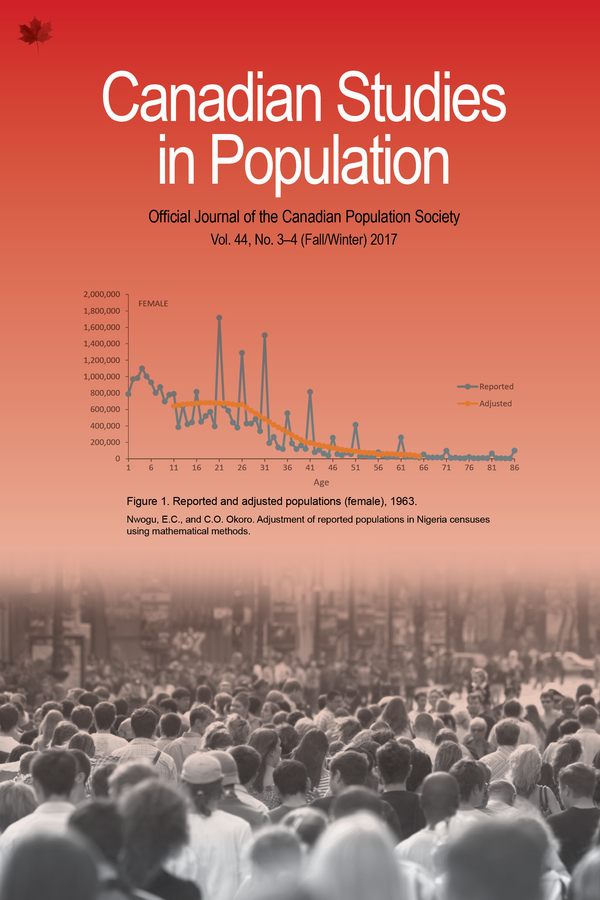Stationary population, immigration, social cohesion, and national identity: What are the links and the policy implications? With special attention to Canada, a demographer’s point of view
DOI:
https://doi.org/10.25336/P6391DKeywords:
Population policy, population growth, Stuart Mill, western civilisation, social cohesion, multiculturalismAbstract
In recent years, this author has devoted some of his research to the question of stationary population as a policy vision for Canada and beyond. The focus was largely economics and ecology. The virtue of the stationary population, it was argued, is that it cut across ecologists’ long-term concerns and economists’ short-term concerns. The present paper, while reiterating some of the same economic arguments, addresses stationary population as a policy option from the point of view of national identity and social cohesion. To this end, it explores the policy and ideological dimensions of multiculturalism in Canada. It also examines immigration trends in Canada and Western Europe, and makes some incursions into the history of how cosmopolitan states have fared. The paper’s conclusion is that stationary population is optimal in terms of national identity and social cohesion.
Ces dernières années, l’auteur a consacré certaines de ses recherches à la question de la population stationnaire au Canada et ailleurs dans le monde. L’optique en a été économique et écologique. La vertu de la population stationnaire, il a été soutenu, réside dans le fait qu’elle réponde aux préoccupations tant à long terme des écologistes qu’à court terme des économistes. Tout en réitérant ces préoccupations, la présente étude examine les attributs de la population stationnaires du point de vue de l’identité nationale et de la cohésion sociale. Dans ce but, l’étude explore les dimensions du multiculturalisme au Canada. Sont également examinés les courants migratoires au Canada et dans les pays occidentaux, tout en faisant des incursions dans l’histoire des sociétés cosmopolites, leurs réussites et leurs échecs. La conclusion de la présente étude est que la population stationnaire est optimale des points de vue de l’identité nationale et de la cohésion sociale.
Downloads
Published
Issue
Section
License
Copyright (c) 2019 Anatole Romaniuk

This work is licensed under a Creative Commons Attribution 4.0 International License.
The following copyright statement applies to content published in Volumes 1 - 45 of Canadian Studies in Population.
Authors retain copyright and grant the journal right of first publication with the work simultaneously licensed under a Creative Commons Attribution License that allows others to share the work with an acknowledgement of the work's authorship and initial publication in this journal.
Authors are able to enter into separate, additional contractual arrangements for the non-exclusive distribution of the journal's published version of the work (e.g., post it to an institutional repository or publish it in a book), with an acknowledgement of its initial publication in this journal.
Authors are permitted and encouraged to post their work online (e.g., in institutional repositories or on their website) prior to and during the submission process, as it can lead to productive exchanges, as well as earlier and greater citation of published work (See The Effect of Open Access).



